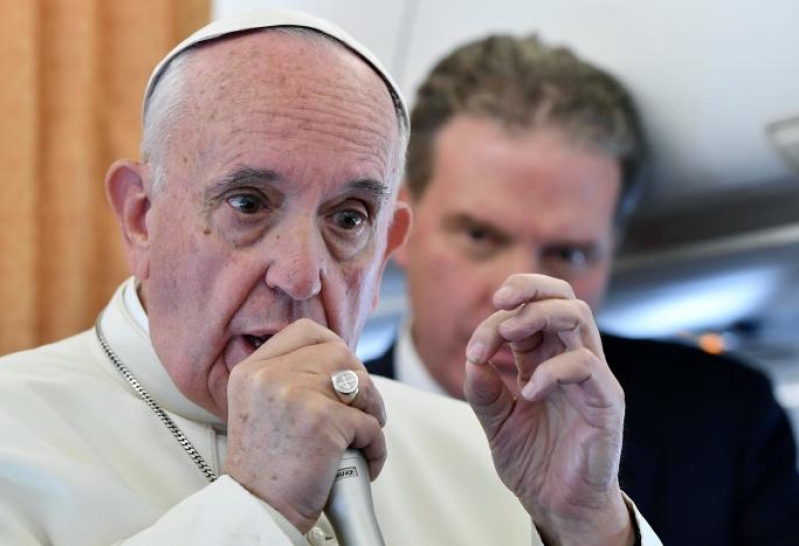
Following his recent trip to Sweden to commemorate the Reformation, Pope Francis released a statement which has, for some, fanned a flame long sparked. On his return home, the pope was confronted with the question of the possibility of female ordination to the priesthood. It can be assumed that, in light of the respect shown regarding denominational issues and the fact that the head of the Swedish Lutheran Church is female, Antje Jackelén, the pope's words were particularly sincere for their political incorrectness.
To back his refutation of female ordination, Francis directed to the fact that all of Christ's chosen disciples were male. He further attested to the testimony of John Paul's declaration set forth in the 1994 ORDINATIO SACERDOTALIS. Within, Pope John Paul II expressed the finality of the issue, citing tradition, Pope Paul VI, and the approval of the Supreme Pontiff in the Declaration Inter Insigniores:
"She holds that it is not admissible to ordain women to the priesthood, for very fundamental reasons. These reasons include: the example recorded in the Sacred Scriptures of Christ choosing his Apostles only from among men; the constant practice of the Church, which has imitated Christ in choosing only men; and her living teaching authority which has consistently held that the exclusion of women from the priesthood is in accordance with God's plan for his Church."
When questioned again by the reporter with seeming disbelief---"Never?"---Pope Francis responded with a gracious reflection on the long-held belief that women are valuable and strong in their traditional position---outside of the priesthood. He proceeded to remember Mary, mother of the Savior, and the women Christ appeared to initially, following His blessed Resurrection. These blessed women retained no official position in the church, either then or throughout church history; not since now, it would seem, has the potentiality been seriously questioned. The inquisition has become a particular temptation with the decline of ordained priests and the increased demand for sexual equality.
Kate McElwee, co-executive director of the Women's Ordination Conference, received the pope's words with comparable passion. It is apparent that according to her, the pope's patriarchal emphasis carries with it considerable social damage:
"In this space, we wrestled with the damaging effects of oppressive structures, knowing that patriarchy and hierarchy hurt us all. We discovered, time and again, that by sharing as equals and asking hard questions, we can transform ourselves, our church and our world."
Due to the controversial nature of the topic, the end of the inquiry is doubtless. However, whatever perspective taken on the subject, the pope may be commended for an unwavering motive to continue tradition amidst such heated views.







